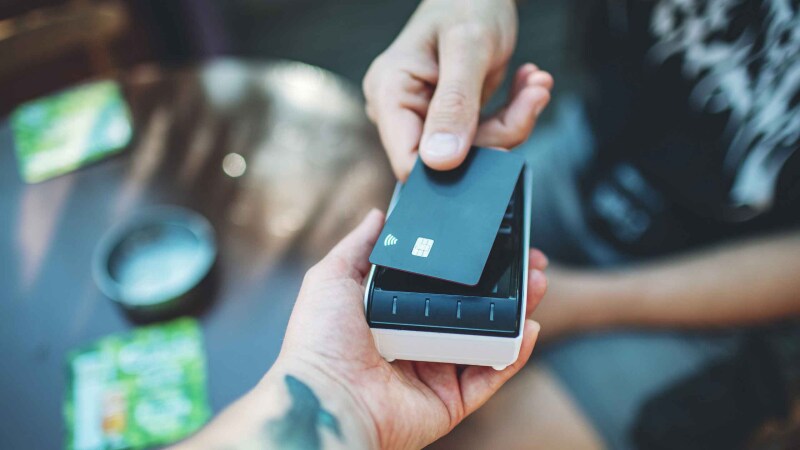What are pending transactions and how long do they take?

If you’re checking your credit card transactions regularly, you may have noticed some of the charges are labeled as pending. Pending transactions are charges still waiting to be fully posted to your account. But what exactly does this mean, and how long do pending transactions usually take?
What does pending transaction mean?
A pending credit card transaction is a purchase or charge that hasn’t been fully processed. This happens when the credit card issuer has confirmed that you have the available balance to pay for the purchase but has not fully processed it yet.
There are multiple transactions that might appear as pending, such as after using your card to purchase gas at a pump or adding a tip at a restaurant. It’s also common to see this when online shopping, as some merchants may hold off on processing the payment until your order has shipped, this includes international purchases too. Essentially, pending transactions mean the money has been committed to a specific purchase, but it’s still moving between accounts.
Your account balance may or may not reflect the money spent in a pending transaction. You are still able to use your card normally while these payments process. If you notice any issues with your pending transaction, it may help to reach out to the merchant, as that is where the payment originates.
How long do pending transactions take?
How long pending transactions take to finally process and post to your account depends on a few different factors. These include the merchant, the bank or credit card issuer, the payment processing network and the type of transaction.
For everyday transactions that may be pending, you’ll likely see them processed within three to five business days.
In summary
When it comes to pending transactions, just think of them as money already spent — even if they aren’t reflected in your balance yet. Check your account regularly, and if you notice an issue with a pending transaction — whether that’s the amount, how long it’s taking to process or something else — try reaching out to the merchant.
FAQs
Can a pending transaction be declined?
Your bank or card issuer may decline a pending transaction if the purchase amount exceeds your available funds. In the case of certain transactions, such as international ones, credit card issuers or credit card networks might need cardmember approval in order to approve the transaction and process it, and not decline it.
How to cancel a pending transaction on a credit card
When it comes to pending transactions, most card issuers are unable to cancel or dispute the transaction until it has fallen out of a pending state and is posted. This is because the amount of the transaction is subject to change if it’s still pending, so many issuers will only deal with issues on payments that are posted.
If you do want to cancel a pending transaction, it’s best to contact the merchant directly. They may be able to remove or cancel a pending charge before it posts.
What happens to pending transactions when a credit card is cancelled?
If your credit card is cancelled before a pending charge posts, you will likely still be charged for that purchase. It can vary depending on your issuer, but you’ll likely receive a final bill in the mail for the pending charge.
Are pending transactions included in your credit card balance?
You’ll likely see that the amount of the pending transaction is subtracted from your available credit, but not yet added to your account balance. The exact manner in which pending charges are reflected in your balance may vary depending on your issuer.



